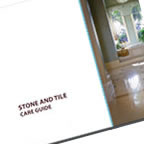FAQ - Stone | Terrazzo | Tile | Concrete | Metal
Frequently Asked Questions
Here are our most frequently asked questions and their answers. Don't see what you're looking for? Send us a message.
A.
All our estimates are free with no obligation. Our specialists will be happy to have a look at your stone and show you exactly what we can do to clean and restore it to its former glory!
A.
Don’t panic – our specialists will likely be able to fix that for you so well, you’d never know there was ever a chip there. Call us today to schedule your estimate – one of our specialists will have a look at the problem area before creating a unique solution for you.
A.
If your stone is brand new or freshly cleaned, we can seal your stone for you with a quality, professional sealer that will protect your stone from streaks and discoloration.
If the streaks are already there, our specialists will most likely be able to clean those off for you and restore your beautiful stone back to its former glory, as well as sealing it to protect it from future damage.
A.
As long as your concrete surface is properly sealed, it should be easy to clean. Our specialists recommend using a pH-neutral cleaner and avoiding the use of harsh scrubbing pads or abrasive cleaners. Try a few drops of hydrogen peroxide 3% with warm water and a microfiber mopping pad to gently clean away dirt and sanitize your floors without compromising their beauty.
We are also happy to recommend the appropriate cleaning and care solutions for your unique concrete when we come to clean and seal it for you.








